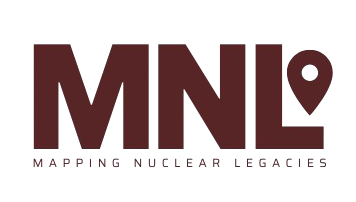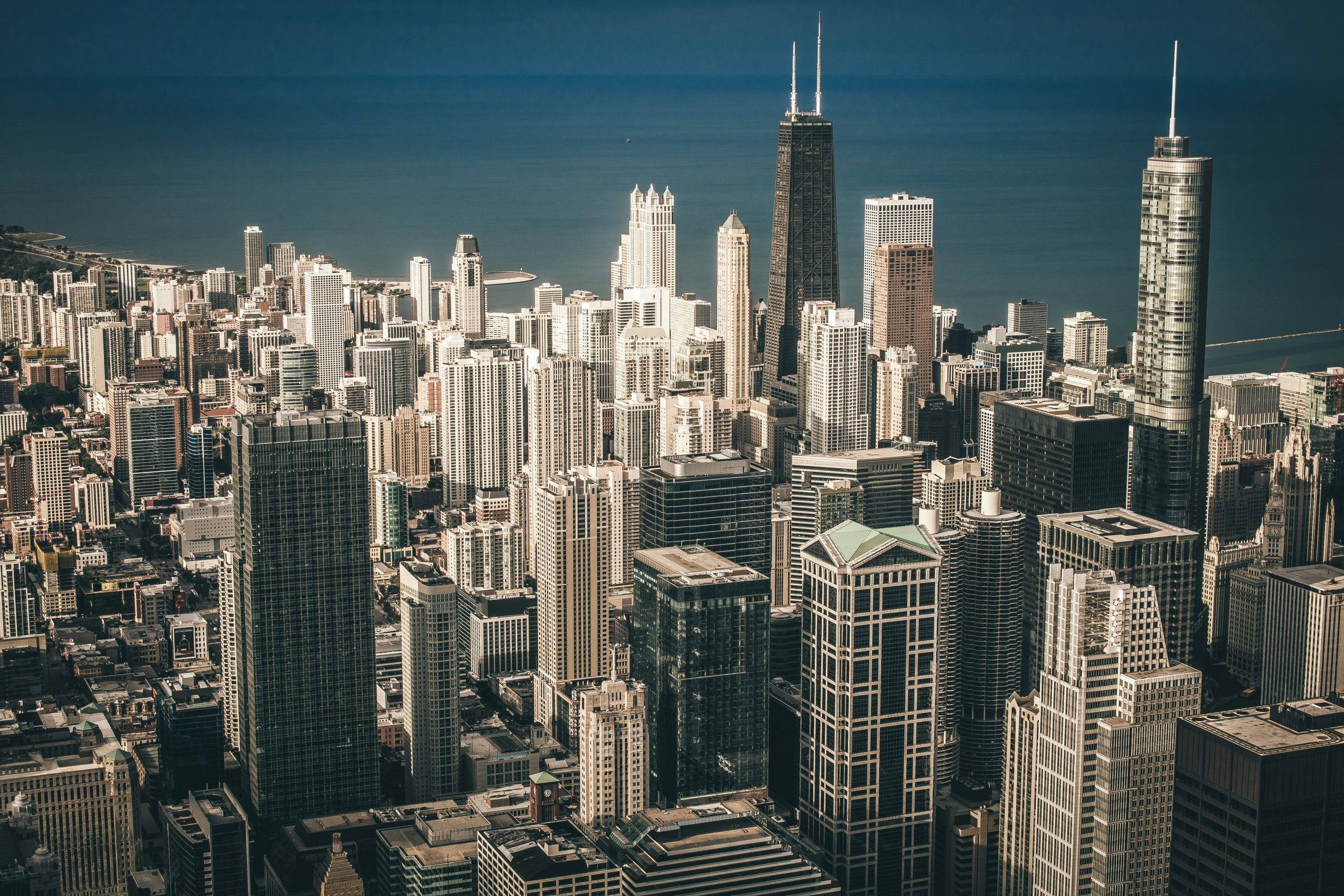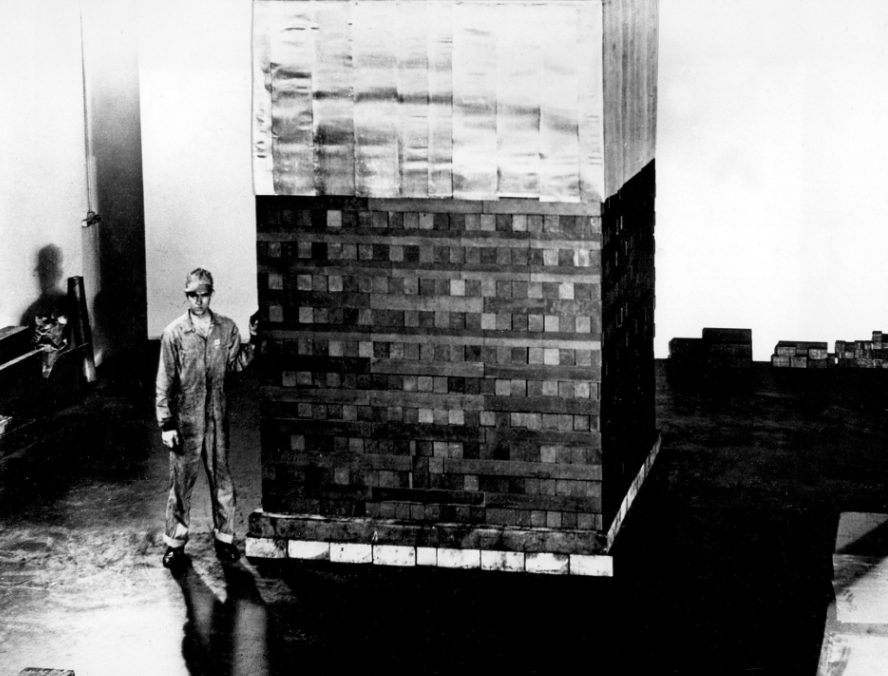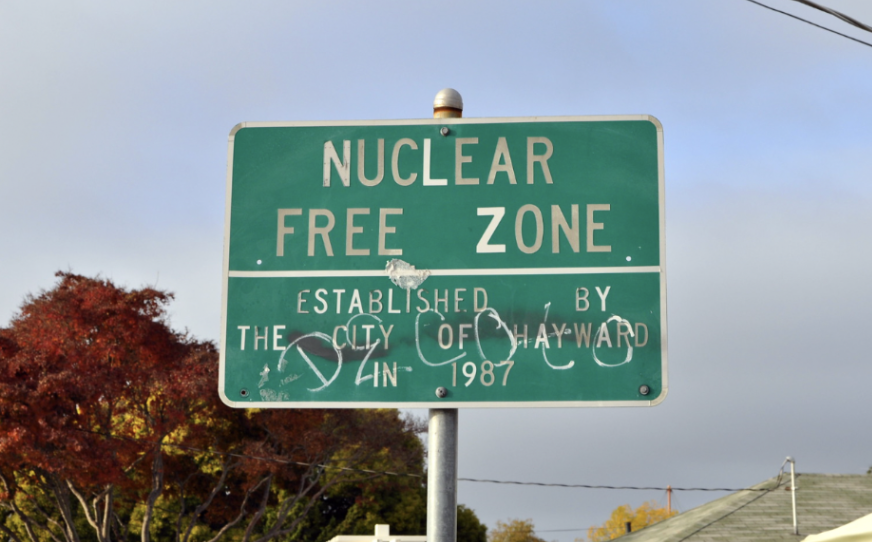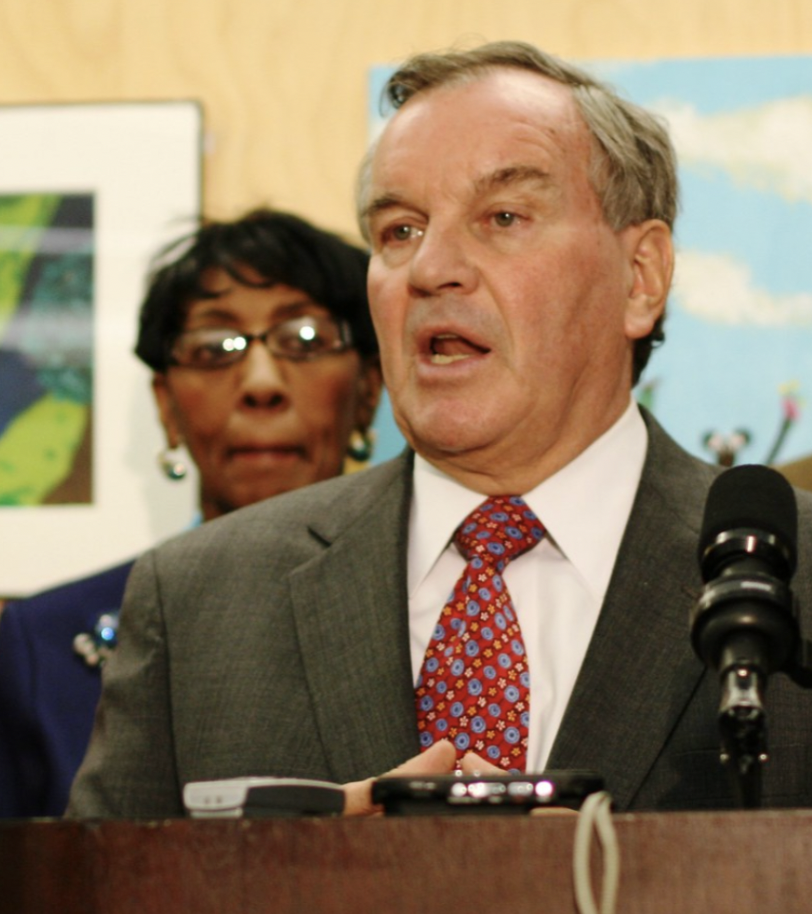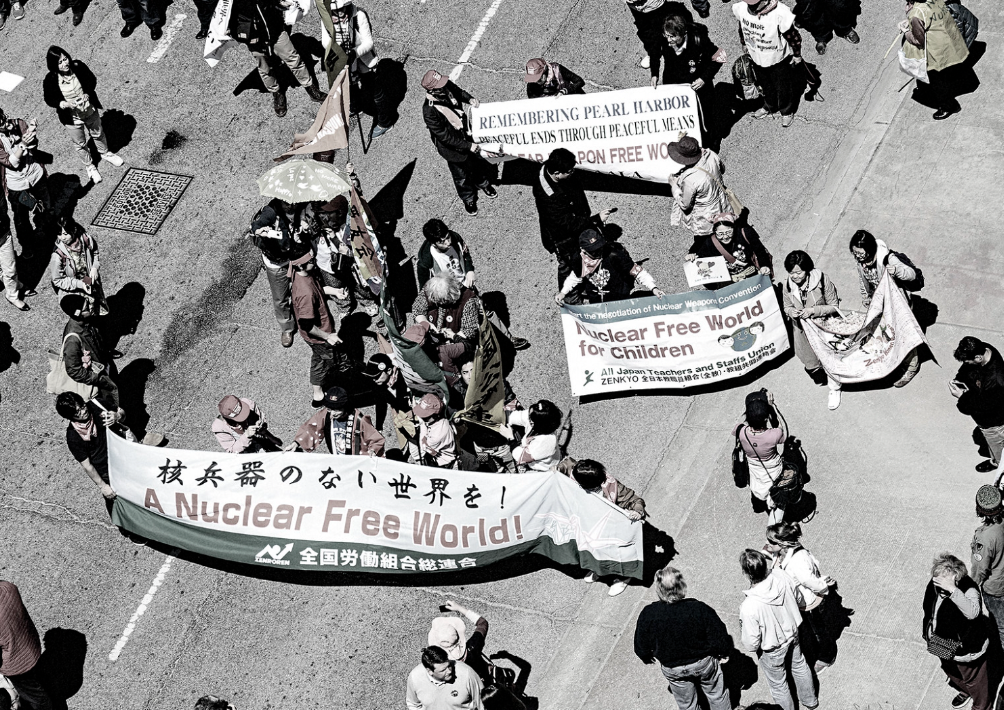Table of Contents
- Introduction
- News, and Other Relevant Links
- Related Organizations and Resources
- Media & Historical Archives
- Featured Resolutions
- A Look Through Time
Chicago, Illinois, known as the birthplace of the Atomic Age, has a historic past involving nuclear weapons.
On December 2, 1942, scientists at the University of Chicago achieved the world’s first self-sustaining nuclear chain reaction (Chicago Pile-1) under Stagg Field. During the Manhattan Project, the U.S. effort to develop atomic weapons during World War II, scientists like Enrico Fermi, Leo Szilard, Leona Woods, Martin D. Whitaker, and George Weil worked at the Chicago Metallurgical Laboratory (Met Lab) through 1946. This period marked Chicago as a pivotal location in the development of nuclear weapons, including those dropped on Hiroshima and Nagasaki. But in the years since those bombs were dropped, Chicago also became a site of significant activism against nuclear weapons. Concerned members of the Atomic Scientists of Chicago founded the Bulletin of the Atomic Scientists, an enduring organization that created the Doomsday Clock, a symbolic representation of how close humanity is to global catastrophe, or “midnight.” Alongside groups like Chicago Area Peace Action (CAPA), city council members, activists and organizations have been active in advocating for a nuclear-free future. In March 1986, Chicago declared itself a nuclear-free zone, becoming the largest U.S. city at the time to do so. City leaders took further steps in 2008, when Chicago joined Mayors for Peace, a global network of cities dedicated to promoting nuclear disarmament and fostering world peace. In 2022, the City Council adopted resolution R 2021-920 committing to nuclear disarmament efforts.
Resolution R 2021-920 is officially titled “Call for United States government to cease spending federal tax dollars on nuclear weapons, embrace United Nations Treaty on Prohibition of Nuclear Weapons, and make global nuclear disarmament the main focus of national security policy.” This resolution follows the standard Back from the Brink resolution template for denuclearization legislation, but includes a statement addressing how U.S. investments in nuclear weapons perpetuate inequalities and “fail to address safety and security concerns of communities of color, both at home and abroad while prioritizing security concerns of white Americans.” By including such a statement in the resolution, Chicago’s city leaders begin to address the racial injustices and deep-rooted colonial legacies of nuclear weapons development.
Here, you will find information and resources on Chicago’s strong history of activism and diplomacy in advocating for a nuclear-free world, with a focus on Resolution R 2021-920, passed in 2022, and current ongoing activism.
News, and Other Relevant Links
The mayor of Nagasaki’s peace message to Illinois and the world
Chicago Tribune (2020)
Chicago Joins Movement to Prevent Nuclear War
Union of Concerned Scientists (2022)
Annelise Riles: Nuclear weapons are an existential threat. We should eradicate them.
Chicago Tribune (2022)
Chicago Area for Peace Action (2022)
Americans Want a Nuclear-Free World
The Chicago Council on Global Affairs (2020)
Related Organizations and Resources
Media & Historical Archives
UChicago’s History with the Manhattan Project:
https://physics.uchicago.edu/about/our-history/manhattan-project/
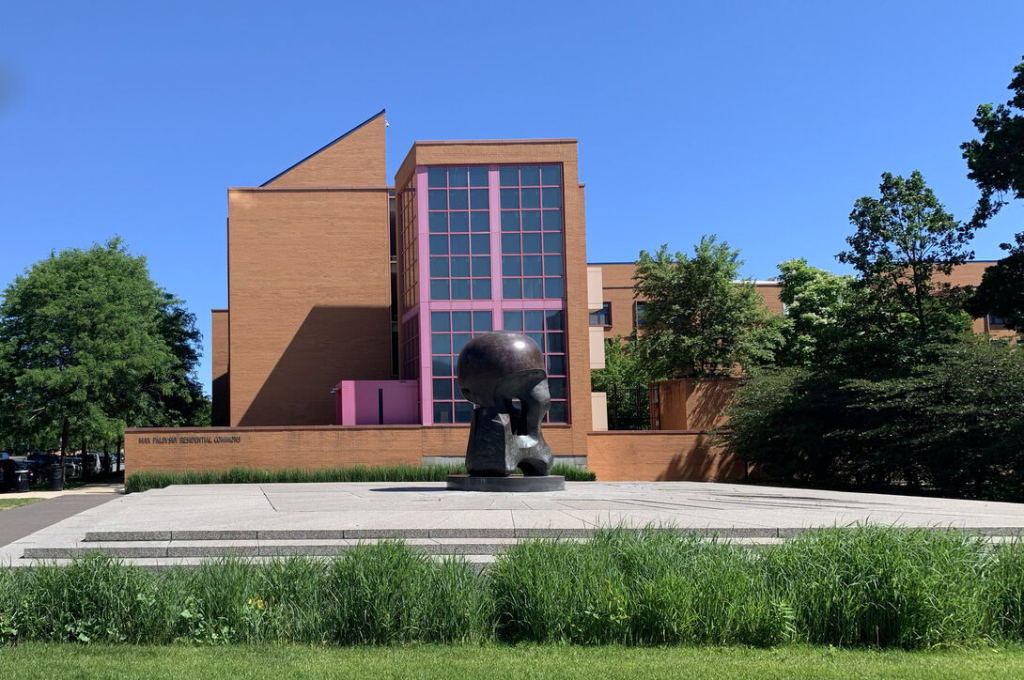
Henry Moore Nuclear Energy Sculpture Plaza
Featured Resolutions
Public Meeting Summaries
RESOLUTIONS
Chicago’s Nuclear Free Zone Ordinance
MARCH 12, 1986
Chicago’s Nuclear Free Zone Ordinance (1986) outlines definitions and regulations concerning nuclear weapons within the City of Chicago, prohibiting the design, production, and storage of nuclear weapons or their components. Exceptions include federal government activities, research, and consumer products. Additionally, the ordinance established August 6th as “Nuclear Weapon Free Zone Commemoration Day”.
(The discussion of R 2021-920 begins at 1:43:33)
This smaller meeting with the Committee on Health and Human Relations in the Chicago City Council introduced and allowed for discussion of R 2021-920. This took place five days before the resolution was passed by the Chicago City Council.
Alderwoman Maria Hadden of the 49th ward, the first speaker, described her nearly year-long effort on the resolution, which was initially developed and brought to her attention by her youth advisory council. She emphasized that youth were integral to shaping the resolution, seeing it as a vital local issue. Alderwoman Hadden highlighted concerns among her constituents about federal dollars being spent on nuclear proliferation instead of essential local needs, such as public health, education, and infrastructure. She stressed that the resolution amplifies community voices and addresses immediate problems, while also paving the way for future solutions. Additionally, she noted the involvement of the Back from the Brink coalition and the historical contributions of the Benedictine Sisters of Chicago.
David Combs of the Union of Concerned Scientists, the second speaker, emphasized the urgency of the nuclear weapons issue, particularly heightened by current global conflicts such as that between Ukraine and Russia. He underscored that nuclear weapons are not just a global concern but also a local issue, citing the New York City Emergency Management Department’s 2022 public service announcement advising citizens on what to do in the case of a nuclear attack as an example of how awareness is being raised about the current threat. Combs criticized the PSA for missing the crucial point: the necessity of preventing nuclear conflict and eliminating these weapons entirely.
Combs proceeded to highlight the financial burden of nuclear weapons, noting that in 2021, Chicagoans contributed an estimated $500 million in federal tax dollars towards nuclear weapons, and will contribute a projected $700 million in 2022. These costs include the maintenance of existing weapons and the development of new ones. Combs delved into Chicago’s historical involvement with nuclear weapons, referencing the first controlled nuclear chain reaction under Stagg Field at the University of Chicago and the City Council’s declaration of Chicago as a nuclear-free zone in 1986, prohibiting the development and housing of nuclear weapons. Combs called for the passing of the resolution to advocate for policies that genuinely enhance safety and urged communication with counterparts in Congress to achieve these goals.
Alderwoman Michele Smith of the 43rd Ward initiated the discussion by questioning whether the resolution would lead to unilateral disarmament for the United States. After receiving clarification that it would not, she expressed her belief that Chicago should not involve itself in foreign policy matters. She attributed the lack of social services to Republican policies rather than spending on nuclear weapons. Alderwoman Smith cautioned against giving young people a false impression about the implications of disarmament efforts, citing risks posed by unilateral disarmament.
Alderwoman Hadden rebutted Alderwoman Smith’s point and clarified that while there was some agreement with it, the resolution was not intended to function as foreign policy. Rather, it was about voicing concerns about budget allocations and future spending. She emphasized the need to direct the federal government’s focus towards local and domestic issues describing the resolution as symbolic and a statement and highlighting the importance of addressing smaller pieces of the broader picture.
Alderwoman Smith further expressed her dissent, questioning whether senators should be involved in the discussion and expressing uncertainty about her preparedness to vote on the resolution. Alderwoman Hadden reiterated that the resolution had been under consideration for almost a year, and said she believed that hearing from a senator would unlikely change anyone’s stance on the matter.
David Combs reiterated that the resolution asks for communication with Congress to represent Chicago’s interests, emphasizing that it does not seek to dictate foreign policy. He noted the recurring theme of there not being enough money allocated to addressing the issues constituents care about, stressing that this is a bipartisan issue that transcends political divides.
Ending the discussion, Alderwoman Hadden called for a vote. There were no objections in the Committee on Health and Human Relations, except for Alderwoman Smith.
(2:27:44) Recap of the Committee on Health and Human Relations. The Chairman, Alderman Roderick Sawyer reported on R 2021-920 detailing the urging to cease the spending of federal money on nuclear weapons, to embrace the United Nations treaty on the prohibition of nuclear weapons (TPNW), and to realize the goal of nuclear disarmament. He noted the one objection of Michele Smith.
A Look Through Time
